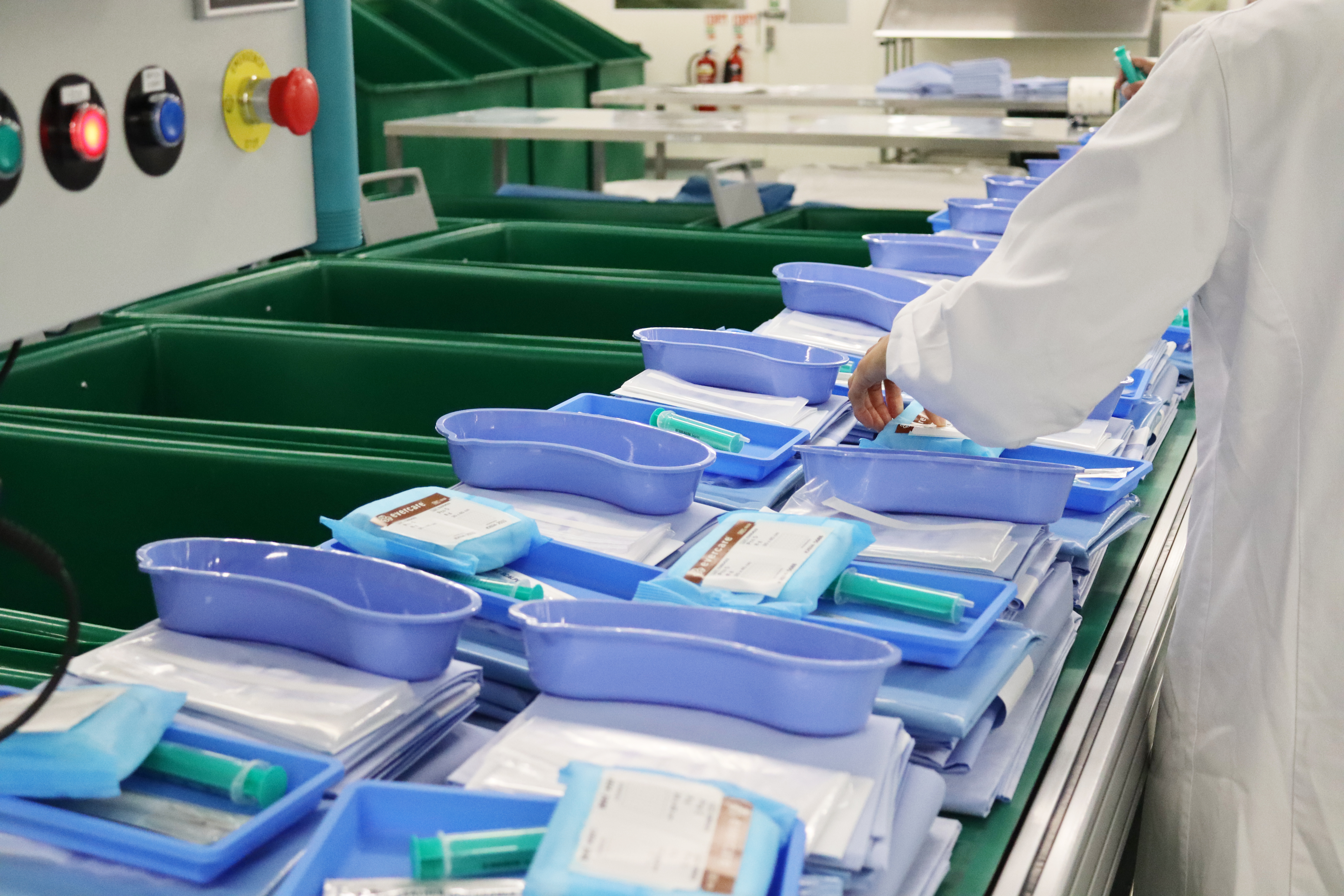With innovation at the forefront of our business model at Pennine, we have implemented a Lean approach to our manufacturing processes.
We are not just a medical manufacturer; we are on a continuous journey towards excellence for the benefit our customers, suppliers, colleagues and the planet. Therefore, our commitment to delivering high quality medical devices is intertwined with our adoption of Lean Practices.
The Medical manufacturing industry demands precision, reliability, and uncompromising quality. Embracing Lean Practices enables us to meet these rigorous standards while achieving operational excellence. By starting to minimise waste and reduce lead times, we are continuing to champion UK manufacturing.
With origins from Japan and the ‘Toyota Production System’, the Lean approach is based around eliminating waste.
In a factory setting, we say that any business can place solar panels on their roof using time and investment. However, we want to eliminate our wasteful behaviours before we invest in critical technology to aid this process. At Pennine, we believe that if we can’t address our current wastes beforehand, then we won’t be addressing the core issues, and continuing with these behaviours.
‘If you leave a light switch on and disregard it, just because you have installed solar energy, you are likely to be twice as wasteful’.
Instead of this, we have started our lean journey by introducing a number of Greenbelts onsite, who are certified to identify and raise waste issues across the business. For 2024 and 2025, we will be strategically placing our Green Belts onto projects where they will be looking to improve energy consumption or analysing processes.
Our main objective is to improve efficiency, by applying the learnings of the Lean Approach, and reducing waste as much as possible in house before considering implementing any large projects.
We are proud to have such a large manufacturing site of 100,000 sq ft. However, one of our latest lean projects, has been to complete the ‘Big Office Move’, and bring our office operations all onto one floor – both saving energy and encouraging heightened communication.

Overall, as a business, we have invested £15,000 into the training of our Green Belt candidates. The projects that they each took on were all very successful with an average saving of £200,000 directly as a result of our first cohort!
A look at our project savings during our first cohort:
Sophie dedicated her project to the inefficiency of three different packaging machines, discovering that one maintained a low OEE (overall equipment efficiency). The waste identified was ‘waiting’ – the machinery had a cycle delay caused the increased waiting times before staff could load the materials.
The potential savings for Sophie’s project were predicted to be around £70,000 and arguably, more importantly, there has been an increase in productivity by 17% and an OEE of 7% with cycle delay improvements only. After aiming for an increase of OEE of 5%, the project has undoubtably exceeded expectation.
Damion started his project focusing on machine YP001 to identify the cause of unplanned downtime with an aim to reduce it by 10%. The identified waste for Damion’s project was ‘waiting’ for the parts to repair the machine – and ‘Motion’. Furthermore, his team worked hard to find that the root causes for downtime in YP001 were, punch issues, trapped door, machine age and obsolete parts.
We have seen the benefits of his project, including a saving of around £35,000. The machine in question has shown record breaking units of production which indicates a positive correlation between production and the reduction of these wastes.
Dionne also dedicated time to identify wastes on one of our packaging machines – SP001. Her team managed to identify multiple wastes that included, waiting, excess processing, and motion.
This project involved identifying the root cause for the lane variation within the seal strength where test samples were taken from four points to make the necessary improvements. Now we have seen that all data input errors have been corrected, all pulling on seal strength is higher than prior to the change, and we are now achieving well over the standard 122GF.